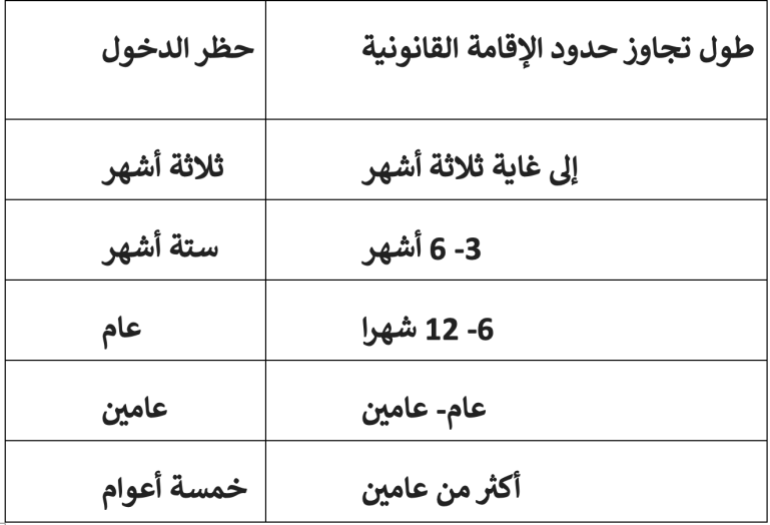In fact, millions of foreigners currently live in or visit Turkey frequently.
In order to enter and reside there, they need to obtain a Turkish visa.
If they want to extend their stay, they need only obtain a residence or work permit.
The entry ban is not always imposed on aliens who exceed the legal residence limits.
For their part, Turkish lawmakers have required entry bans only in serious cases of overstepping the legal residence limits.
For minor transgressions, imposing administrative fees at varying rates is not considered sufficient punishment.
It should be noted that these two documents specify a certain period of legal residence in Turkey.
Once this period has expired, visa, residence or work permit holders must either leave Turkey or renew their permits.
Unfortunately, without taking the necessary measures, many foreigners - by mistake or deliberately - exceed the limits of their legal residence in Turkey.
Among the penalties for exceeding the limits of legal residency is a ban on entry to Turkey.
Another penalty is an administrative fee.
A foreigner who has been placed under an entry ban will not be able to re-enter Turkey for a period of time once he has left the country.
However, it must be noted that the entry ban is not always imposed on foreigners who exceed the limits of legal residence.
For their part, Turkish lawmakers have required entry bans only in serious cases of overstepping the legal residence limits.
For minor transgressions, imposing administrative fees at varying rates is not considered sufficient punishment.
In fact, the factors that determine the danger of exceeding the limits of legal residence are the “length of the overstay” and “the fact whether the foreigner left the country voluntarily or not.”
This is the reason why there are so many possible scenarios when it comes to entry bans, and there is so much confusion about entry ban rules in Turkey.
In this case, we will briefly highlight the possible scenarios:
1. If the period of overstaying the legal residence limits is less than 3 months, no entry ban will be imposed.
There are exceptions to this matter explained in Article 3 (c), (d), (e), (f) and (g).
2. If the period of exceeding the legal residence limits exceeds 3 months and the foreigner then decides to leave Turkey voluntarily (before the judicial commissioner orders law enforcement or the police arrests him), the duration of the entry ban will be as follows, as long as the foreigner pays the penalty fees imposed on him:
3. Below I will address several different scenarios that could lead to a prolonged entry ban:
If the period of exceeding the legal residence limits exceeds 3 months and the foreigner then decides to leave Turkey voluntarily (before the judicial commissioner orders law enforcement or the police arrest him), but does not pay the penalty fees imposed on him while leaving the country.
If the period of exceeding the limits of legal residence exceeds 3 months, and the judicial commissioner has ordered the enforcement of the law or the police have arrested the foreigner.
Then he will be notified of the decision to deport him.
If the commissioner orders law enforcement or the police arrests the alien before the legal residency limit exceeds 3 months, he will be notified of the deportation decision in return for the alien’s non-compliance with the deportation decision.
If the foreigner's residence permit or work permit application is refused or his permit is revoked, and the foreigner is invited to leave Turkey in a specified period of time but did not leave the country during that time.
If a foreigner is allowed to enter Turkey via a conditional entry form, but does not apply for a residence permit within 10 days, and if the foreigner is arrested and forcibly deported by law enforcement, the duration of the entry ban will be as follows:
Last but not least, even when the entry ban has expired, a foreigner can only enter Turkey if he pays the penalty fee imposed on him.

